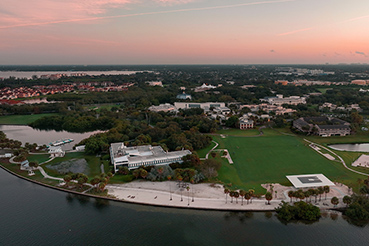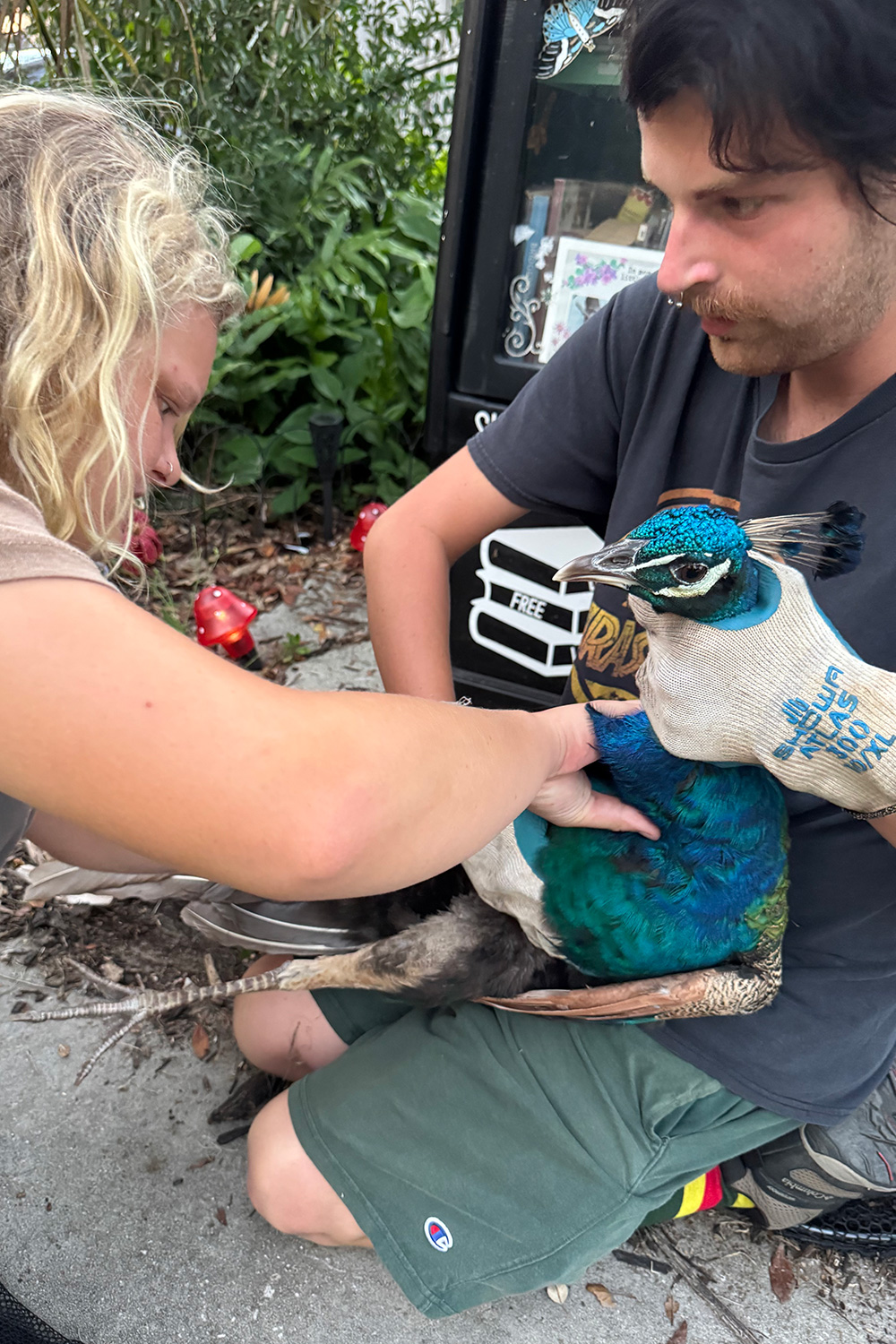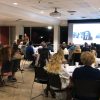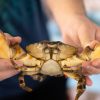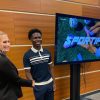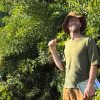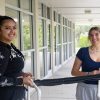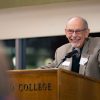When students at Eckerd College see an injured pelican tangled in fishing line or a songbird colliding with a window, they don’t just walk by and hope for the best. They call the Eckerd Wildlife Rescue Club—a group of trained student volunteers who respond to calls around the clock to rescue animals in need of help.
The club, founded initially as Save Our Seabirds, has been active for more than a decade. Donovan Snell has been a member for four years.
“I started freshman year when it was still Save Our Seabirds,” says Donovan, a senior animal studies and ancient studies student from Philadelphia, Pennsylvania. “Sophomore year, I got more involved; junior year, I was vice president; and now as a senior, I’m president.”
A typical rescue begins with a text or phone call from students on campus or the local St. Petersburg community. To assess the severity of the situation, volunteers ask for a photo of the animal and an exact location, so they can plan the level of intervention needed.
“If it’s something small like a baby squirrel or a songbird, we can usually just pick it up,” Donovan explains. “But for bigger animals or ones that could cause injury, we bring gloves, nets and carriers.”
From there, a volunteer transports the injured animal to the right facility. Smaller birds are taken to a licensed rehabilitator mere minutes from campus, while pelicans, cormorants and raptors are taken to the Seaside Seabird Sanctuary.
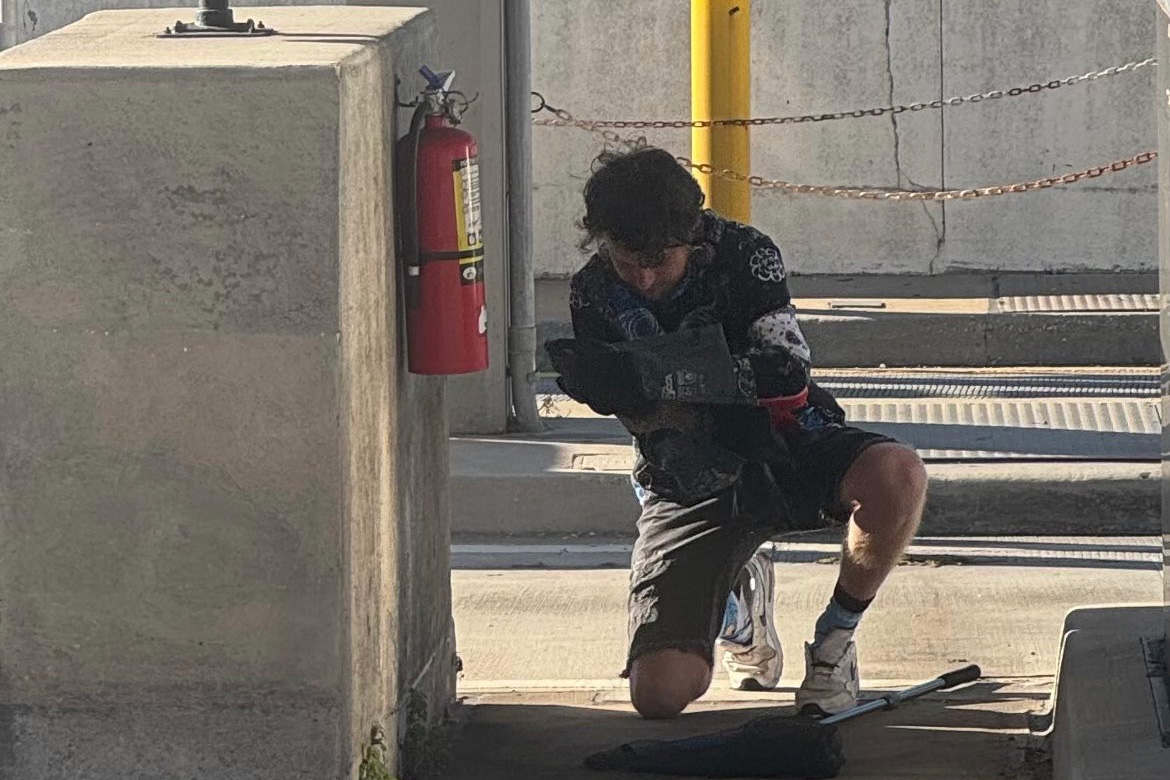
Senior Donovan Snell (pictured above) and other student members practice handling animals with care through trainings with stuffed animals.
“Every rescue is different,” Donovan says. “Sometimes it’s as simple as picking up a stunned bird. Other times, it’s dealing with an electrocuted raccoon that Campus Safety finds in the middle of the night.”
In the state of Florida, no formal license is required to rescue most species under the Good Samaritan Act; the club ensures its members are properly trained to handle a variety of wildlife. For new volunteers, club leaders host demonstrations with plush animals to practice proper handling techniques so as not to further injure animals.
During a recent hurricane, floodwaters and debris stranded, trapped and injured many animals. “A great egret came in with its lower half crushed by a lawn chair,” Donovan recalls. “That’s not something people usually think about with storms … flying debris injuring animals.”
Each semester, the club welcomes new members with meetings and training workshops. “We’re open to anyone,” Donovan explains. “We’ll teach you everything you need to know. You just need to show up, stick with it and care about helping animals.”
“I love rescuing animals, because you get to speak up for those who can’t for themselves,” he adds. “Animals, especially wild ones, are a forgotten part of our community that should be considered like everyone else.”
For Eckerd students, this is a valuable opportunity to gain firsthand experience with wildlife, directly connecting with interests and academics. Whether answering late-night calls or clearing debris from a hurricane’s aftermath, club members and how they respond can mean the difference between life and death for animals.
St. Petersburg’s Taylor Smith, a junior biology and animal studies student, recalls one of her most memorable rescues—which was performed with Alex Hernandez, a senior animal studies and biology student from Naples, Florida, and Molly Jennings, who graduated in 2025. “My most memorable rescue was an entangled pelican that Alex and Molly and I captured on a boat with EC-SAR! Then it poured rain on us on the way back to campus.”
As the Wildlife Rescue Club’s sponsor, Professor of Environmental Science and Biology Elizabeth Forys, Ph.D., has seen the member’s impact up close. “I’ve been very impressed by the level of training and professionalism of the club’s members. They are providing an essential service to our wildlife and community, while giving opportunities for students to learn valuable skills.”

